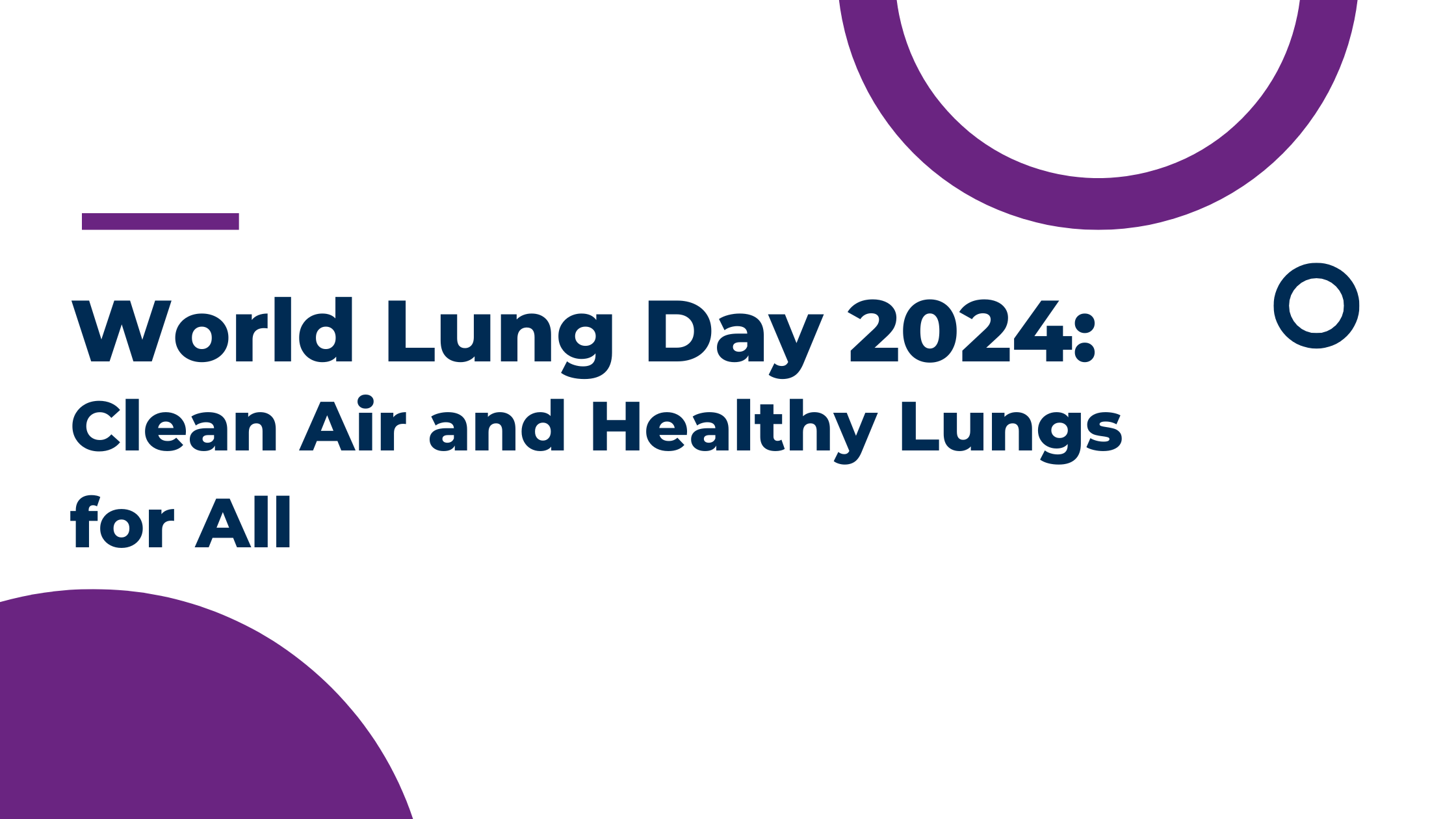World Lung Day was created in 2017 by the Forum of International Respiratory Societies (FIRS), the day was established to raise awareness about lung health and advocate for better lung health globally. Celebrated annually on the 25th of September, FIRS brings together several major respiratory organisations, including the American Thoracic Society (ATS) and the European Respiratory Society (ERS), to promote education and action on respiratory health issues worldwide.
This World Lung Day we are particularly focusing on asthma, a chronic respiratory condition affecting millions worldwide. In England alone, hospital admissions for asthma paint a concerning picture: 15,5328 children under the age of 19 and 34,824 adults were admitted for asthma emergencies during 2022/20231.
September can be a particularly challenging month for children, as the demand for GP visits and hospitals spike after the summer holidays2. Figures show a 348% rise in the number of 5-14-year-olds admitted to hospital with an asthma attack in September3. This can be due to stress, coughs, colds, cold air and a lapse in asthma management routines over the summer2. Another factor is air pollution, which further complicates asthma management. Between 2017 to 2019 in London alone, air pollution contributed to 7% of all paediatric asthma admissions4.
When asthma remains undiagnosed or receives inadequate treatment, it can lead to stress, anxiety, or depression, as well as lung infections, hindered growth and delayed puberty in children. Additionally, it can escalate to critical asthma attacks that can be life-threatening5.
So, what can we do to better manage asthma and reduce the need for emergency care? Establishing an early diagnosis and ensuring consistent monitoring is crucial. A key part of this is Fractional exhaled Nitric Oxide (FeNO) testing. A FeNO test measures airway inflammation, typically found in patients with asthma. The use of FeNO testing, in conjunction with a comprehensive clinical history and additional examinations, contributes to more efficient asthma diagnosis and enhances patient care. Furthermore, it enables the monitoring of patients’ responses to asthma interventions.
Carol Stonham MBE, a seasoned registered nurse who serves at Gloucestershire ICB, leading the Respiratory Clinical Programme Group, co-leads the NHSE South West Respiratory Network, and is also a member of Bedfont’s Medical Advisory Board says “The diagnosis of asthma isn’t always easy and sometimes evolves over time. We know the basis of asthma is inflamed airways, so to be able to measure that to help confirm the diagnosis as a part of the diagnostic puzzle is vital. It also demonstrates the inflammation to the patient helping them to understand the inflammatory process, and the effects of any inhaled medication they might be prescribed. It is also key at other asthma consultations to reiterate the vital aspect of patient education and to help guide follow up care and patient understanding.”.
Bedfont® Scientific Limited are world leaders in breath analysis, with over 47 years of knowledge and expertise in the design and manufacture of medical breath analysis devices; including the NObreath® FeNO device. The NObreath® plays a pivotal role in improving asthma diagnosis and management by measuring FeNO levels on a patient’s breath. This non-invasive test provides instant results, helping healthcare professionals make more informed decisions about a patient’s asthma status. The NObreath® helps ensure patients receive the right interventions at the right time, ultimately reducing the frequency of asthma attacks and hospital admissions.
As we observe World Lung Day 2024, it is clear that tackling asthma requires a multifaceted approach, by improving awareness, reducing environmental triggers like air pollution, and advancing diagnostic methods. By continuing to advocate for better respiratory care and investing in tools like FeNO testing, we can make a significant impact in reducing the burden of asthma worldwide. For more information on the NObreath® and how FeNO testing can aid in the diagnosis and management of asthma, please visit www.nobreathfeno.com.
References
1. Fingertips Public Health Profiles [Internet]. Department of Health and Social Care. 2024. [Cited
Thursday 5th September 2024]. Available from: https://fingertips.phe.org.uk/search/asthma
2. NHS warning to parents ‘asthma season’ hits [Internet]. NHS. 2019. [Cited Thursday 5th September
2024]. Available from: https://www.england.nhs.uk/2019/09/nhs-warning-to-parents-as-asthma-
season-hits/
3. Buelo A, McLean S, Julious S, Flores-Kim J, Bush A, Henderson J, Paton JY, Sheikh A, Shields M, Pinnock H. At-risk children with asthma (ARC): a systematic review. Thorax. 2018 Sep 1;73(9):813-24.
4. Health impact assessment of current and past air pollution on asthma in London [Internet]. Imperial College London. 2022. [Cited Thursday 5th September 2024]. Available from: https://www.london.gov.uk/sites/default/files/hia_asthma_air_pollution_in_london.pdf
5. Improving access to FeNO testing in primary care [Internet]. Health Innovation Network. 2023. [Cited Thursday 5th September 2024]. Available from: https://www.ahsnnetwork.com/programmes/respiratory-disease/bettering-access-to-feno-testing-in-primary-care/

